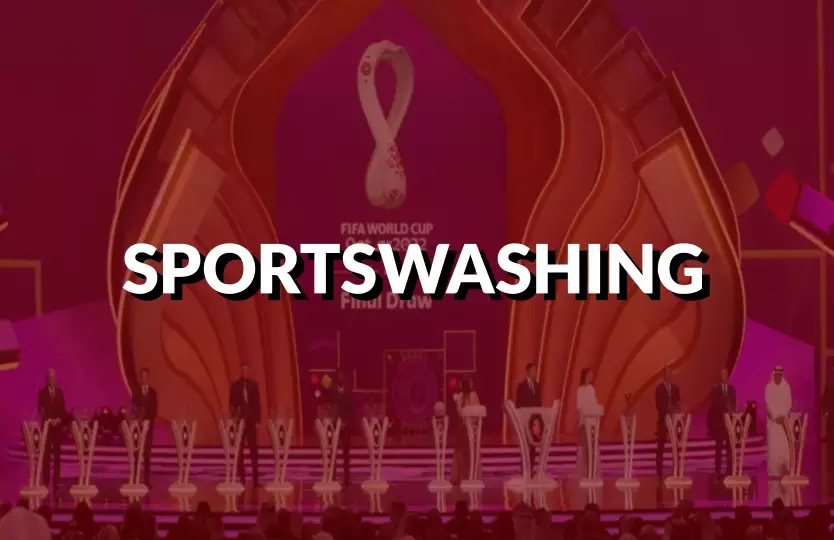I. Introduction
A. The significance of sports sponsorship and image branding
Sports sponsorship and image branding play a crucial role in promoting businesses, nations, and organizations. They provide an avenue for exposure, engagement, and positive associations, strengthening the brands’ reputation and appeal.
B. Intricacies and ethical concerns surrounding sports washing
Underneath the surface of sports sponsorship and branding lies the complex issue of sports washing. It refers to the strategic use of sports to improve public perception, distract from controversial actions, or manipulate narratives, leading to ethical concerns and criticism.
C. Overview of the article’s exploration of sports washing
In this article, we will delve into the concept of sports washing, its origins, and its relationship with politics and reputation management. We will examine the tactics and strategies employed, the ethical concerns raised, and ways to recognize and address sports washing in the sports industry.
II. Understanding Sports Washing
A. Defining sports washing and its origins
Sports washing refers to the deliberate use of sports sponsorship and events to enhance reputation or divert attention from negative aspects. The term gained prominence due to the increasing intersection of sports and politics, where entities aim to manipulate public perception.
B. The relationship between sports, politics, and reputation management

The world of sports provides a powerful platform for reputation management. Sports entities and sponsors capitalize on this by engaging in sports washing strategies, including:
- Promoting positive brand image through association with successful sports teams
- Exploiting sports events to distract from controversial actions or policies
III. The Tactics and Strategies of Sports Washing
A. Financial investments and ownership
- Acquiring ownership in popular sports franchises or clubs Entities with controversial backgrounds may purchase a stake in successful sports teams to improve their image or gain access to a broader audience.
- Financially backing major sporting events to enhance international reputation Sponsoring prestigious events, such as the Olympics or FIFA World Cup, allows organizations or nations to generate positive associations and increase global visibility.
B. Strategic sponsorship and brand associations
- Partnering with high-profile athletes, teams, or events for positive brand association Sponsoring popular athletes, renowned teams, or prestigious events allows entities to align their brand with the values and success of the sporting entities, enhancing their reputation.
- Leveraging sports events to showcase national or corporate narratives Hosting sporting events can be utilized as an opportunity to project an image of progress, unity, and economic growth, serving as a platform for marketing national or corporate narratives.
In conclusion, understanding sports washing involves recognizing the intricacies and ethical concerns within sports sponsorship and branding. By exploring the origins of sports washing and examining its strategies, we shed light on its impact on the sports industry and the broader society. Awareness of these tactics helps us navigate the world of sports sponsorship with a critical lens, promoting responsible practices, and upholding ethical standards.
IV. Ethical Concerns and Criticisms of Sports Washing

A. Human rights violations and labor exploitation
Sports washing raises significant ethical concerns regarding human rights violations and labor exploitation. This includes:
- Discrepancies between brand image and actual practices Entities involved in sports washing may project a positive brand image through sponsorships and branding, but their actual practices may contradict these notions. This can include labor violations, unsafe working conditions, or environmental harm in their operations.
- The impact of hosting major sports events on local communities Hosting major sports events can have both positive and negative impacts on local communities. While these events may bring economic benefits, infrastructural development, and tourism, they can also result in displacement of communities, increased inequality, and exploitation of labor.
B. Dictatorships, corruption, and political manipulation

Sports washing enables certain entities, including dictatorships and corrupt regimes, to manipulate public opinion and divert attention from human rights abuses. This involves:
- Using sports to whitewash a country’s human rights abuses By playing host to major sporting events, countries can attempt to improve their international image and distract attention from their human rights violations. This can lead to the public perception that all is well, while underlying issues remain unaddressed.
- The influence of political interests on sports organizations and decision-making Political interests and corruption can infiltrate sports organizations, impacting decision-making processes and compromising the integrity of the sport. This can include bribery, manipulation of bidding processes, and unfair treatment of athletes or teams based on political affiliations.
V. Recognizing and Addressing Sports Washing

A. Evaluating the credibility of sports sponsorships
To combat sports washing, it is important to critically evaluate the credibility and intentions of sponsors. This involves:
- Scrutinizing the intentions and values of sponsors
Researching the background and track record of sponsors can help identify any potential misalignments between their brand image and actual practices. It is essential to select sponsorships that align with positive ethical values and promote transparency. - Conducting due diligence on potential ethical implications
Thorough due diligence should be conducted to assess any potential ethical implications before entering into sponsorship agreements. This includes examining labor practices, environmental impact, and the overall reputation of the sponsoring entity.
B. Raising awareness and accountability
To address sports washing, awareness and accountability must be promoted within the sports industry. This involves:
- Engaging fans, athletes, and the media in critical discussions
Encouraging open and critical dialogue among fans, athletes, and the media is crucial. This includes discussing the ethical implications of sponsorships, exposing questionable practices, and demanding accountability from sports organizations and sponsors. - Encouraging transparency and responsible governance in sports organizations
Establishing and enforcing robust governance structures, codes of conduct, and ethical guidelines within sports organizations are essential to foster transparency and ensure responsible practices. This includes promoting integrity in decision-making, financial accountability, and fair treatment of all stakeholders.
In conclusion, sports washing raises ethical concerns regarding human rights violations, labor exploitation, political manipulation, and corruption. By recognizing and addressing these issues, including evaluating sponsor credibility and promoting transparency, the sports industry can move towards responsible sponsorship practices and uphold ethical standards. Creating greater awareness and accountability within the industry is essential in ensuring that the world of sports remains a platform that enriches society while upholding human rights and ethical values.



